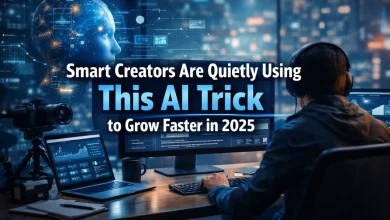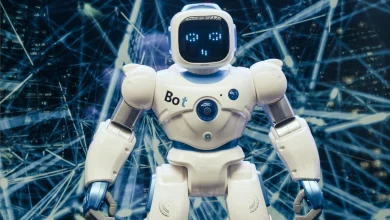The Future of AI: How Artificial Intelligence Will Transform Everyday Life by 2030
Smart Homes and AI-Driven Living

Artificial Intelligence (AI) is no longer just a futuristic concept. Every year, technology advances faster, integrating into our lives in ways we never imagined. By 2030, AI will impact almost every aspect of daily life, from the way we work to how we travel and even manage our health. Understanding these changes can help individuals, businesses, and governments prepare for a smarter, more connected future.
Smart Homes and AI-Driven Living
By 2030, homes will be smarter than ever. AI assistants will manage energy consumption, predict household needs, and even handle chores automatically. Imagine a refrigerator that restocks itself or a heating system that learns your preferences and adjusts temperatures seamlessly. These innovations will save time, reduce costs, and make daily routines smoother.
AI will also improve home security. Advanced sensors, facial recognition, and predictive algorithms will protect homes while notifying owners of unusual activities. The integration of AI in residential life will make comfort, efficiency, and safety a natural part of daily living.
AI in Healthcare
Healthcare will experience a major transformation through AI. Personalized medicine will become more accurate, with AI analyzing genetic data to predict diseases before symptoms appear. Doctors will rely on AI-driven diagnostic tools to make faster, more precise decisions, improving patient outcomes.
Virtual health assistants will monitor chronic conditions, remind patients about medications, and provide mental health support. Hospitals will use AI for scheduling, resource allocation, and patient care optimization. By 2030, AI will not just support healthcare professionals—it will revolutionize the entire system.
AI in Work and Education
AI will redefine the workplace by automating repetitive tasks and allowing humans to focus on creativity and problem-solving. Offices will use AI for project management, data analysis, and performance evaluation, increasing efficiency and reducing human error.
Also Read: SpaceX’s Starship Flight 10: A New Era of Space Exploration
In education, AI tutors will provide personalized learning experiences, adjusting lessons based on each student’s progress. Schools will adopt AI to track student engagement, predict learning gaps, and enhance teaching methods. By 2030, AI will not replace humans but amplify their skills and productivity.
AI in Transportation and Mobility
Self-driving cars and AI-assisted public transport will reshape how Americans move. Traffic management systems will use AI to optimize routes and reduce congestion. Autonomous vehicles will improve road safety, reduce accidents, and lower emissions.
Air travel and logistics will also benefit from AI. Predictive maintenance, automated scheduling, and intelligent cargo management will make travel and shipping more reliable. Daily commuting and long-distance travel will become faster, safer, and more convenient thanks to AI.
AI and Everyday Convenience
AI will simplify countless everyday tasks. From virtual shopping assistants to smart banking, AI will anticipate needs and offer personalized recommendations. AI-powered apps will help plan trips, manage finances, and even select entertainment.
Retail experiences will be more interactive. Stores may use AI to suggest products, streamline checkouts, or create fully customized shopping experiences. This level of convenience will transform lifestyles, making information and services available instantly.
Also Read: Google Pixel 10 Series: Smarter AI, Better Cameras, and a Bold Future
Final Thoughts
By 2030, AI will be an inseparable part of daily life. Its influence will reach every corner of society, from homes and hospitals to workplaces and transportation systems. While challenges such as privacy concerns and ethical considerations remain, the benefits of AI are undeniable. Individuals who understand and adapt to these changes will thrive in a more intelligent, efficient, and connected world.
Frequently Asked Questions
AI will automate repetitive tasks, creating new opportunities in creative, analytical, and technical roles. Continuous learning will be essential for career growth.
No. AI will assist professionals by providing insights and data-driven support. Human expertise will remain critical for decision-making and personal interactions.
Yes. AI-powered security systems will detect unusual activity, alert homeowners, and even prevent potential threats using predictive algorithms.




